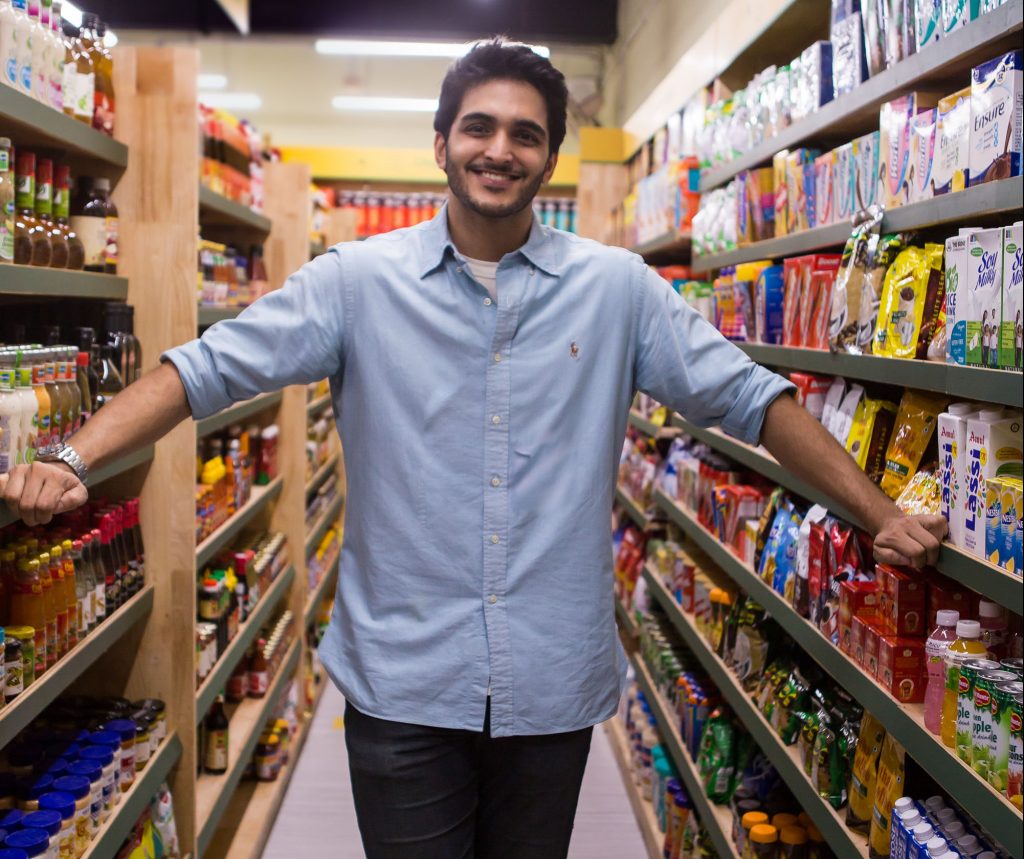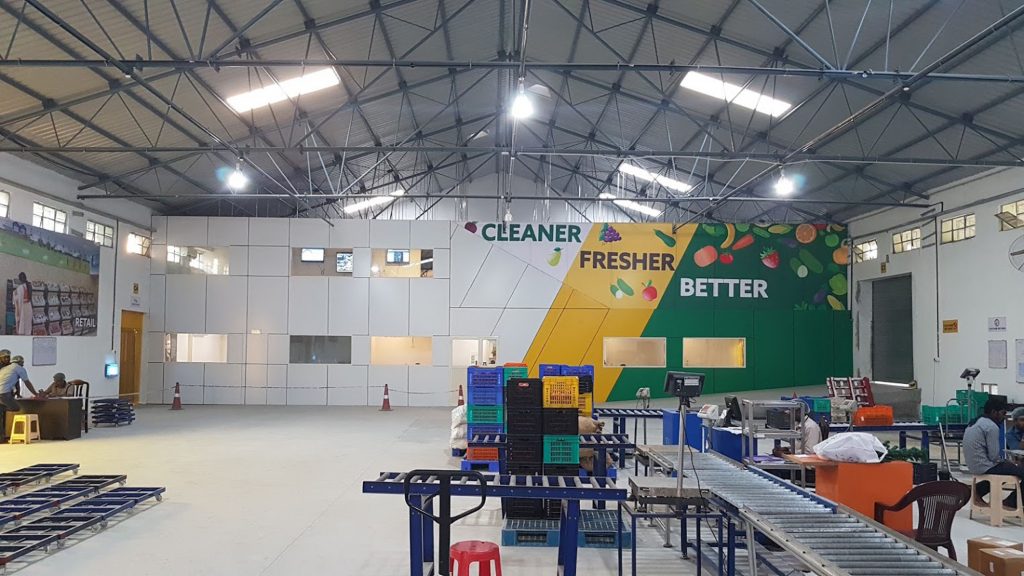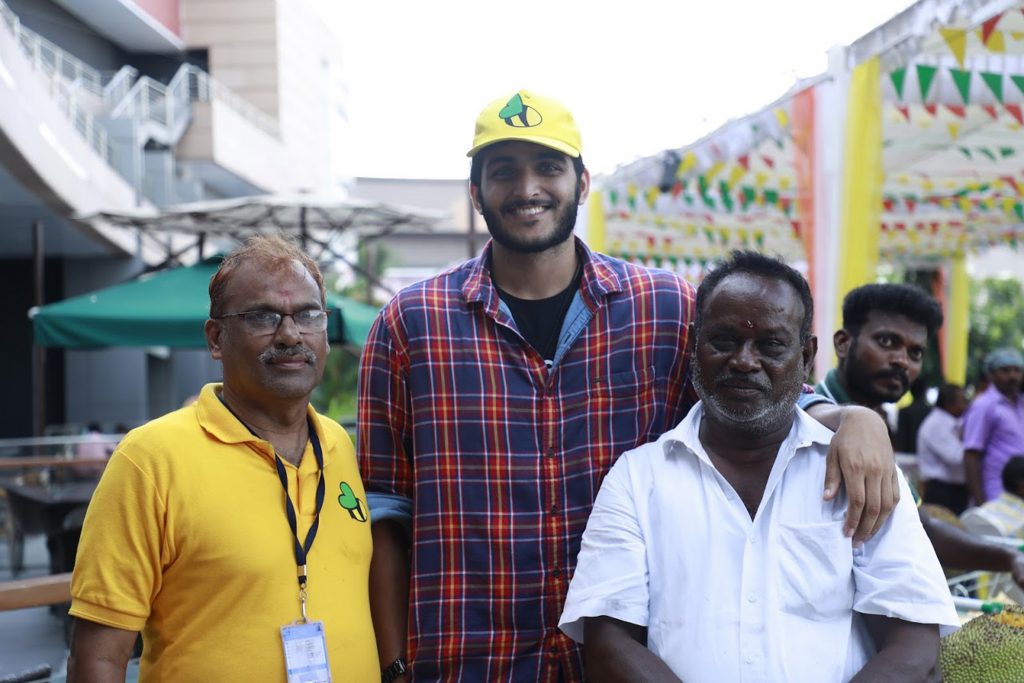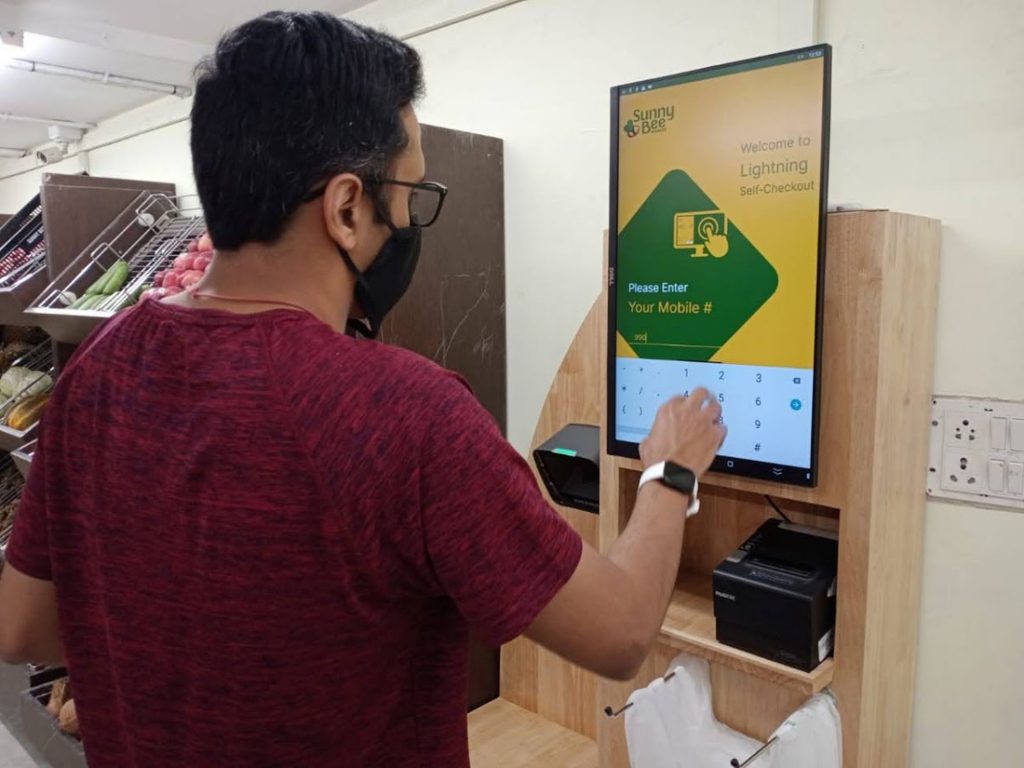With his excellent ventures in promoting local farmers and fresh produce, Sanjay Dasari, Co-Founder at WayCool Foods, is taking the business by storm at a young age. Team Culturama catches up with the entrepreneur about his successful business with SunnyBee and other future plans
 What are the three qualities of a successful entrepreneur?
What are the three qualities of a successful entrepreneur?
Optimism, action orientation, and integrity.
How did you come up with the concept of SunnyBee?
During my final year at Babson College (the United States), I was exploring the idea of launching a chain of food trucks in India. As part of the research and business planning process, I had spent a lot of time studying the fresh produce supply chain in the country. I quickly became uncomfortable with the lack of hygiene and transparency in the traditional food supply ecosystem, and when discussing with other food entrepreneurs, I discovered that most of them shared similar concerns. With this the idea shifted to a restaurant supply business.
In the early days, we wanted to get direct customer feedback and maintain 100% control of the end-to-end process, so we started with the retail venture called SunnyBee. We started on trucks, similar to the original food truck concept, and sent these trucks to apartments and office complexes, bringing farm fresh fruits and vegetables to people’s doorsteps. Things snowballed from there as we diversified into wholesale business selling to restaurants and hotels, added staples and dairy products to the portfolio, and more.
What is your take on the agriculture market in India compared to that in other countries?
It’s an interesting yet concerning dichotomy. Agriculture is the primary source of income for nearly half the population, yet India has some of the highest rates of farmer suicide and farmer distress. India is also the world’s second largest producer of fruits and vegetables and has a clear capability to be the world’s food source, but we suffer from 20% to 45% of food wastage due to poor planning, inefficient operations and other related issues.
One of the key things to understand about the Indian agriculture market is that Western solutions will not be ‘copy-pasteable’ to solve this problem. For example, in the United States you might be able to buy 1,000 tonnes of potatoes from one farmer, but in India, you would have to buy 1 tonne of potatoes from 1,000 farmers. The average farm holding is around 500 acres per farmer in the United States versus 2 acres per farmer in India. Western countries also have large established stores like Whole Foods and Costco that buy in bulk, while in India we have thousands of kirana stores, each of which requires small quantities of nearly 150 varieties of fruits and vegetables, every single day. So the cost of collecting produce and the cost of segregating produce for each customer’s requirement are both incredibly high, with equally complicated processes.
 Can you share an anecdote from your experience for global farmers?
Can you share an anecdote from your experience for global farmers?
One of my favourite things that we do at SunnyBee is hold regular ‘Santhai’ activities. This is basically a massive farmers’ market where SunnyBee pays for the transportation, logistics and accommodation for 100+ SunnyBee farmers across the country and their products, and farmers get to keep 100% of the proceeds from the event. It’s a beautiful event where customers and farmers are face-to-face, interacting with each other, learning about each other and building relationships. At the Santhai, I witnessed a farmer and a customer speak for nearly an hour about their families, the fact that both their daughters were captains of their local cricket teams, that their wives made ‘the best sambar in Tamil Nadu’, and more. It was heartening to see an equal relationship between both ends of the food supply chain, when so often this industry gets caught up in pity, glorifying the saviour complex when discussing farmer-related issues.
How can the general public support Indian farmers?
The best thing people can start doing is ask questions, instead of taking typical marketing tactics for granted. There are hundreds of ethical, hardworking, and impactful companies across the country working to improve the livelihood of India’s farmers, who we should use our buying power to support, but equally we should be wary of those who use the farmer’s suffering as marketing fuel.
Our approach to working with farmers has been one rooted in transparency and focusing on ‘partnering’ with farmers rather than a mere transactional relationship. With WayCool Foods, the parent company that owns the brand SunnyBee, we work with farmers from the soil testing and pre-cultivation stage, to ensure higher quality products are grown, and we use technology to track products across their entire journey from farm to fork. As members of the public, it’s important that we use our consumption power to support brands that are supporting farmers.
 In all your travels, what is the one experience that you feel defines you?
In all your travels, what is the one experience that you feel defines you?
Each travel experience gives me something that I bring back home to apply to my work and life. For example, while studying in Boston and eating at food trucks in the city, I had the idea of launching food trucks in India. While in Rome and shopping at a supermarket, I noticed key operational differences in how things were done there, which I have since applied to SunnyBee. Even a greater understanding of how a Whole Foods in Ohio operates gave me the idea to drive product packaging back to the farm rather than in a warehouse in the city, which has generated more rural employment. Although I’d love to be able to point to a single specific experience that has given me direction, the reality is that those experiences are happening on a daily basis, and it’s been a humbling process trying to convert them into tangible outcomes. I’m always learning.
Whom do you consider as your inspiration?
Other than my parents, I would have to say Nobel Laureate Muhammad Yunus, the founder of Grameen Bank in Bangladesh. Specifically because of the work he had done in microfinance and social entrepreneurship, which incidentally served as the basis of nearly all my college application essays back in the day. His focus on disruptive thinking, with a specific goal to uplift the poorest of the poor at the bottom of the pyramid, is nothing short of inspirational, and I’m always looking at options to integrate some of his core principles into how we run things here at SunnyBee.
Has COVID-19 lockdowns affected the agriculture industry?
The agriculture sector has faced several challenges; availability of labour, limited access to markets for produce on account of limited transportation facilities and markets being non-operational, and a complete lack of visibility into supply and demand movements. But with timely support from the government, we have been able to avert a major setback. The economic stimulus announced by the Prime Minister to navigate India’s economy out of the slowdown on account of COVID-19 was definitely a proactive and welcome step, and it’ll be interesting to see how we can continue to work through this crisis.
How can one know that vegetables and fruits are GMO/pesticides free?
Unfortunately, especially in India, it’s nearly impossible to know for sure unless you grow it yourself. There are very few organisations that have the documentation and offer the transparency required to actually crosscheck cultivation practices, and even those may not have a focus on consumer sales. The best the general public can do is to ask questions and learn more about where their produce comes from, who is growing it, and more. Certifications are a step in the right direction as well, but it will be a while before India can build confidence in the organic story and trust the organic claims.
If not at work, how do you spend your free time?
Cooking, lifting weights or playing basketball. Over the past 4 months, I’ve been really missing the last one, but I’ve taken the opportunity to experiment some new things in my kitchen. I stay at home with my parents, a cousin, three grandparents, two dogs, and three cats, so there has been a host of unwilling test subjects for new recipes every day!
Despite your success at such a young age, you are so balanced. How do you manage that?
Firstly, thank you for that. If that is in fact true, I honestly believe it comes down to how I was raised. I’m extremely ambitious, and despite whatever we’ve accomplished so far I know that there is a lot more than we can do in the future. The problem of food security and farmer welfare in India is so massive that it’ll take a lifetime of work to even make a dent. So where some see success, I personally see a starting point. Giving back and uplifting the community has been something my family has put an emphasis on since day one, so I have them to thank for my drive to make an impact.
What is the advice you live by?
There are three guiding values that have shaped my life; be Humble in our demeanour, Humane in how we interact with stakeholders and Hungry in our quest for excellence and creating impact.
 Rapid 5
Rapid 5
• A businessperson you admire – My father, Vinod Dasari
• A quote that inspires you – Courtesy of my brother for sending me this quote by Paul Farmer “Resisting the easy anesthesia that privilege affords is going to be your next big challenge.”
• Word you use the most – Interesting
• Your favourite meal – Korean BBQ
• 10-Year goal – Grow SunnyBee and WayCool to positively impact 5 lakh farmers across the country.
